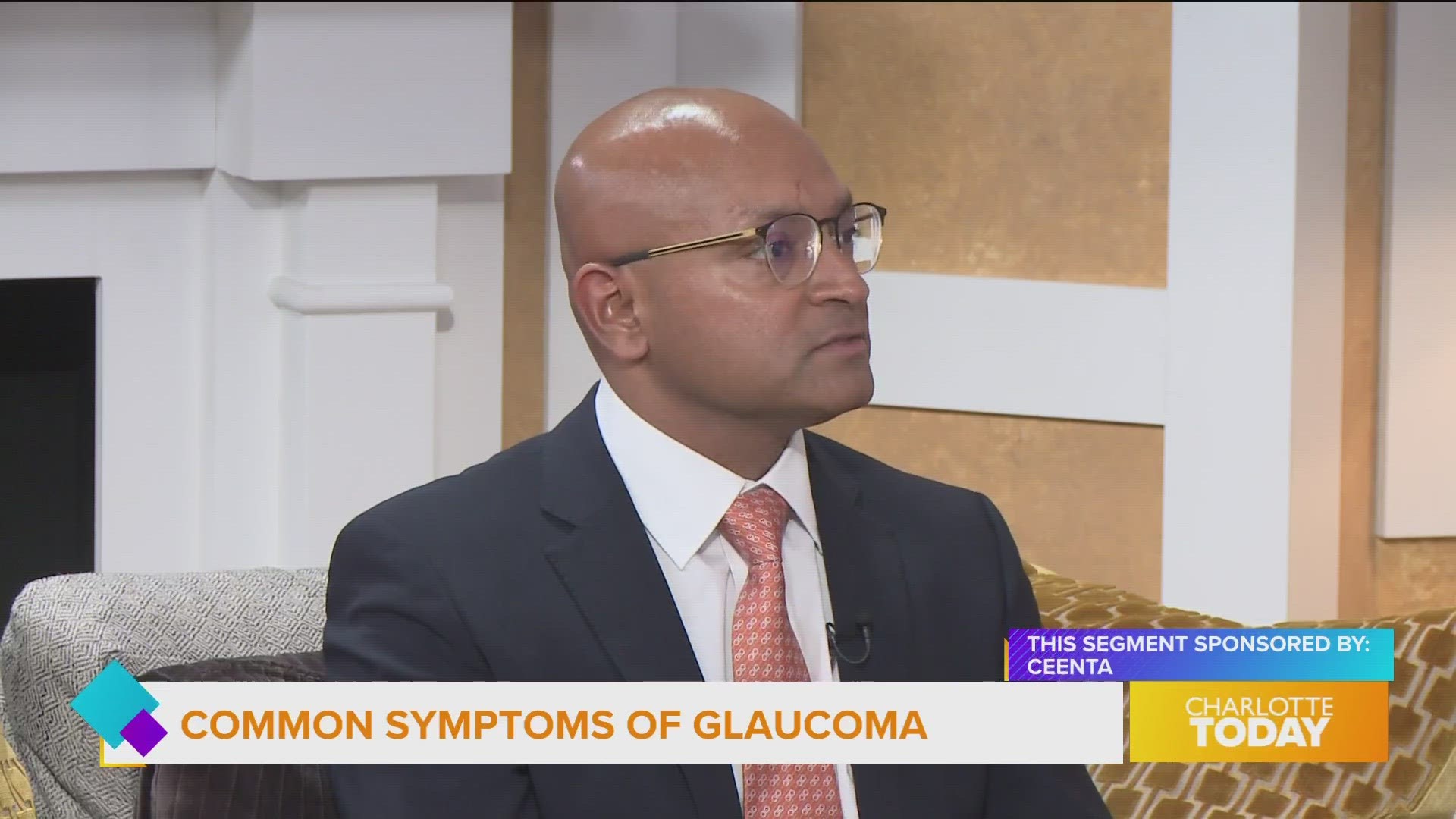CHARLOTTE, N.C. — The products and services featured appear as paid advertising.
Today we are talking about eye care, specifically glaucoma. Here to answers some important questions is Dr. Shobit Rastogi, ophthalmologist and glaucoma specialist who practices at Charlotte Eye, Ears Nose and Throat Associates’ (CEENTA) Statesville office.
What is glaucoma?
Glaucoma is a disease of the optic nerve, which transmits the images you see from the eye to the brain. The optic nerve is made up of many nerve fibers (like an electric cable with its numerous wires). Glaucoma damages nerve fibers, which can cause blind spots and vision loss. Glaucoma is often, but not always, caused by a buildup of the pressure inside the eye, known as intraocular pressure (IOP). When a clear liquid that normally flows in and out of the eye cannot drain properly, pressure builds up in the eye. The resulting increase in IOP can damage the optic nerve and lead to vision loss.
What are some of the symptoms?
Symptoms include:
- Your vision is suddenly blurry
- You have severe eye pain
- You have a headache
- You feel sick to your stomach (nausea)
- You see rainbow-colored rings or halos around lights
What risk factors are associated with glaucoma?
Some people have a higher than normal risk of getting glaucoma. This includes people who:
- are over age 40
- have family members with glaucoma
- are of African, Hispanic, or Asian heritage
- have high eye pressure
- are farsighted or nearsighted
- have had an eye injury
How do we treat it at CEENTA?
The goal of glaucoma treatment is to lower your eye pressure to prevent or slow further vision loss. Your ophthalmologist will recommend treatment if the risk of vision loss is high. Treatment often consists of eyedrops but can include laser treatment or surgery to create a new drain (and bypass the damaged one) in the eye. Glaucoma is a chronic disease that can be controlled but not cured. Ongoing monitoring (every three to six months) is needed to watch for changes. Several different treatments are available from our glaucoma doctors in SouthPark, Belmont, Concord, Huntersville, Matthews, Salisbury, Statesville, and University. Check out the new bigger space in our Mooresville location. You should ask your eye doctor if you have any questions about glaucoma or your care.
For more information visit CEENTA.com

